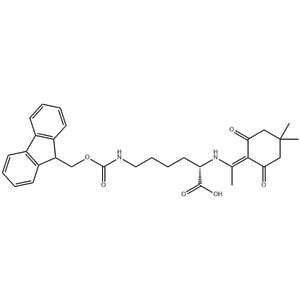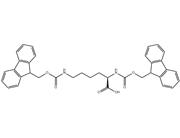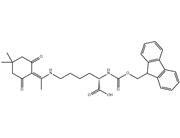Solid-Phase Peptide Synthesis:DDE-LYS(FMOC)-OH is a key component in solid-phase peptide synthesis due to its dual protection. The FMOC group allows for selective deprotection and coupling with other amino acids, while the DDE group protects the ε-amino group of lysine, preventing premature reactions.
This amino acid derivative finds use in the synthesis of peptides with lysine residues at specific positions, where maintaining the lysine's ε-amino group in a protected state is crucial. Biological Studies:Peptides containing DDE-LYS(FMOC)-OH can be used in biological assays to study protein-protein interactions, receptor binding, or enzymatic activities. The lysine residue, once deprotected, can participate in these interactions, providing valuable insights into biological processes. The presence of the FMOC group does not interfere with biological activities, making DDE-LYS(FMOC)-OH suitable for in vitro and in vivo studies. Drug Discovery:DDE-LYS(FMOC)-OH can be used in the synthesis of peptide-based drugs or drug candidates. The lysine residue, being a positively charged amino acid, can contribute to the binding affinity of the peptide to its target. The FMOC group can be removed during the drug synthesis process, allowing for the conjugation of the peptide to other moieties or drugs. | 
 China
China



